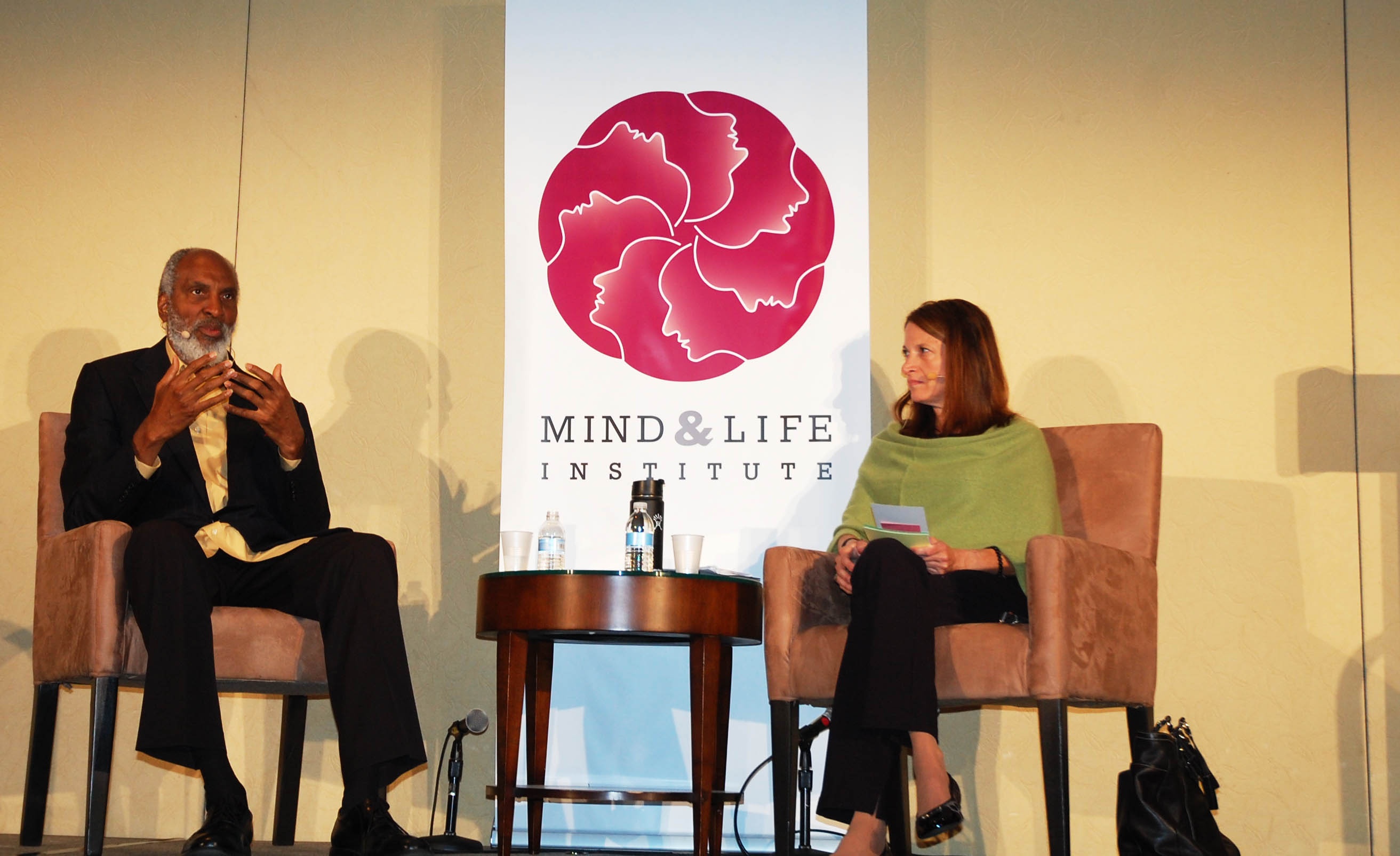
By Sara Grossman | November 4, 2014
What is a good life? How should we live? How should we be in this world? What does it mean to exist? How do we alleviate the suffering that is present in so many forms?
Scientists, scholars, artists, and thinkers came together to answer these questions during the 2014 Mind and Life International Symposium for Contemplative Studies in Boston on Oct. 30-Nov. 2.
The symposium featured notable academics, leaders and writers, including Haas Institute Director john a. powell, Huffington Post Editor-in-Chief Arianna Huffington, and His Holiness, the 14th Dalai Lama. powell emphasized the importance of an alliance between contemplative education and social justice during the pre-conference. In his speech, “A Tale of Two Movements: Why Contemplative and Transformative Education Need Each Other,” powell discussed how the United States can ensure that its students have a true sense of belonging in the educational system.
“We are not just connected to each other,” powell said, “we are each other.” Drawing from the strengths of both the contemplative and transformative education movements, powell detailed the ways in which contemplative education — self-reflection, compassion, and awareness — can be integrated into the educational system along with ethical outlooks that support participation in a fair and just democracy.
During his keynote, powell not only discussed strategies to foster a socially transformative educational system, but also answered questions during an interview and audience Q&A session led by Grace Bullock, a senior researcher at the Mind & Life Institute, an institute that aims to support holistic research into the human mind and condition.
Among other things, powell talked about how contemplative practice personally fits into his life and how he integrates mindfulness into his social justice work. powell also discussed how one can strike a balance between the “inner work” of contemplative practice and the “outer work” of social work, as well as how we can construct a fair and inclusive society that breaks down the barriers between who is one of “us” and who is one of “them”. “Social justice practice and spiritual practice are the same. To deny shared humanity is to deny our own humanity,” powell said.
powell’s keynote kicked off three days of presentations and sessions that endeavored to bring together social justice activists and academics to further human understanding and awareness of contemplative practice. Conference participants hailed from a variety of fields, including neuroscience, psychology, clinical science, philosophy, and education, and aimed to collaborate on advancing understanding of the human mind and how “contemplative practices can lead to reduced suffering, enhanced health and cognitive-emotional functioning, greater happiness, and increased social harmony,” according to the symposium planners.
The Mind & Life Institute works to use scientific understanding of the mind to reduce suffering and promote human flourishing. The symposium brings together people from distinct but overlapping research areas to better understand the human mind and how to train it to reduce suffering and enhance health, wellness and social harmony.
Sara Grossman is a communications fellow at the Haas Institute.




